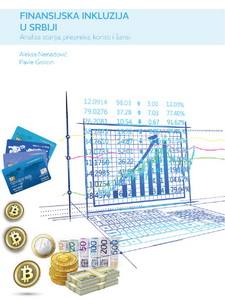 The Social Inclusion and Poverty Reduction Unit of the Government of the Republic of Serbia published the “Financial Inclusion in Serbia – Analysis of the Status, Obstacles, Benefits and Opportunities” publication, by authors Aleksa Nenadović and Pavle Golicin.
The Social Inclusion and Poverty Reduction Unit of the Government of the Republic of Serbia published the “Financial Inclusion in Serbia – Analysis of the Status, Obstacles, Benefits and Opportunities” publication, by authors Aleksa Nenadović and Pavle Golicin.
The analysis was aimed at determining the state of financial inclusion in Serbia by reviewing and comparing existing surveys and research, checking the data available by way of a focus group, and more deeply examine individual attitudes regarding financial inclusion, and then, based on the findings and a review of international literature and practice, proposing measures to increase financial inclusion in Serbia. Thus the analysis sets the foundation and introduction for further research and policy application aiming to increase financial inclusion in Serbia.
Research worldwide has shown multiple benefits for the economy from increasing financial inclusion. For Serbia, it is necessary to increase the education level required for new workplaces if it wants to increase the living standard of its citizens and reduce inequalities. If vulnerable citizens do not have savings in banks and do not take out credits for education, investments in education are also reduced, thereby additionally increasing inequality and reducing economic growth. Individuals having know-how and business ideas, but without bank accounts, cannot apply for business credits, therefore financial exclusion prevents the appearance of new small enterprises on the market. Greater competition among banks and financial inclusion accelerate economic growth and demand for workforce, particularly at the bottom of the income ladder, resulting in higher inclusive growth.
 Government of the Republic of Serbia
Government of the Republic of Serbia















 pdf [271 KB]
pdf [271 KB]
Leave a Comment